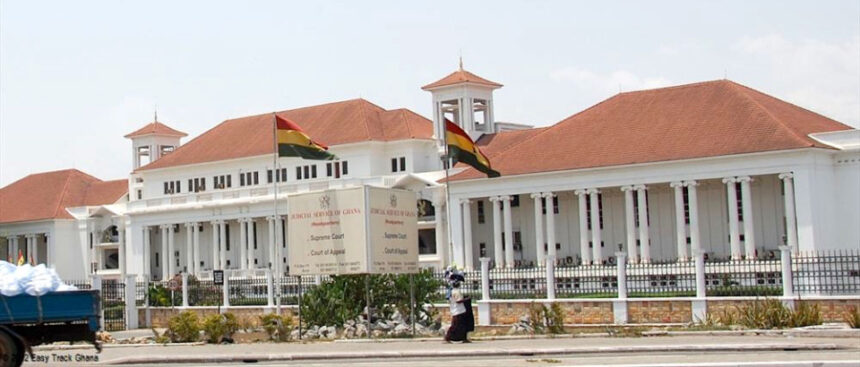The Supreme Court has issued a stay of execution on Speaker Alban Bagbin’s ruling, which declared four parliamentary seats vacant.
Parliament has thus been instructed to recognise and allow the four MPs to fully represent their constituencies and carry out their official duties.
This directive will remain in effect, not for the 10 days initially requested by the applicants, but until the Supreme Court delivers its final ruling on the case.
The application to stay the Speaker’s decision was filed by New Patriotic Party (NPP) Members of Parliament, who sought the Court’s intervention to halt the enforcement of the ruling that would have affected three of their colleagues and one from the National Democratic Congress (NDC).
The application was filed ex parte, meaning that neither Speaker Bagbin nor Parliament was joined to the case.
This allowed the Court to consider the NPP MPs’ request without requiring the participation or response of the Speaker or other parliamentary authorities at this stage.
The case was heard by a panel of Supreme Court justices presided over by Chief Justice Gertrude Torkonoo.
Other members of the panel included Justice Mariama Owusu, Justice Kwame Adibu Asiedu, Justice Ernest Yao Gaewu, and Justice Yaw Darko Asare, who together delivered the ruling to stay the Speaker’s decision.
Representing the NPP MPs were lawyers Paa Kwesi Abaidoo and former Attorney General Joe Ghartey.
They successfully argued for the stay, which temporarily halts the Speaker’s ruling pending further legal proceedings. The Court’s decision effectively keeps the four MPs’ seats intact for the time being.
The ruling impacted MPs Cynthia Morrison (Agona West), Kwadjo Asante (Suhum), Peter Kwakye Ackah (Amenfi Central), and Andrew Asiamah (Fomena), who either chose to run as independent candidates or switched party affiliations for the 2024 elections.
As a result, the NDC, previously in the Minority, now claims a majority with 136 seats compared to the governing NPP’s 135 seats, prompting leadership shifts in Parliament.
But the Supreme Court’s ruling resets parliamentary leadership and dynamics to its former state.
Source:joynewsonline


